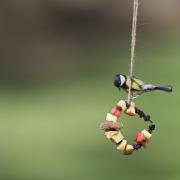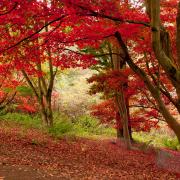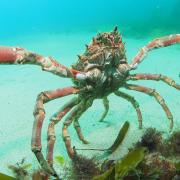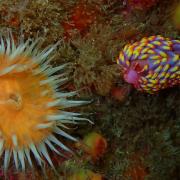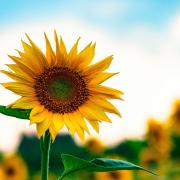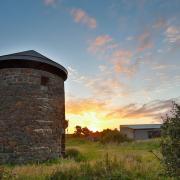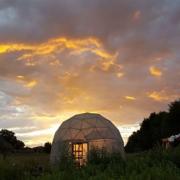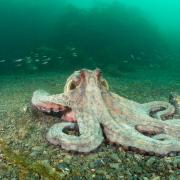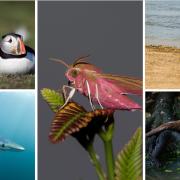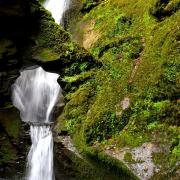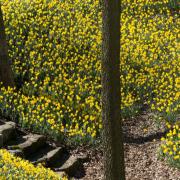It’s not quite Alfred Hitchcock, but the swoop of a seagull can instil fear into the bravest picnicker. Love them or loathe them the seagull is here in Cornwall to stay but nature writer – and self-confessed gull-fan - Arnold Monteith argues for a little understanding
Gulls in general, or seagulls as they’re more commonly referred to as, have received a lot of bad press recently. Over last year’s summer, scare stories about gulls on the attack have been dominating news headlines. Stories of gulls killing dogs or breaking into homes have been making the front pages. Stories which are ridiculously exaggerated but seemed to strike fear into the public eye; even to the extent that our former Prime Minister - and lover of all things Cornwall - David Cameron, stated that ‘serious conversations’ were needed to combat the ‘gull problem’. I realise that I may be in the lesser populated category when I say that I like gulls, but there is definitely a misconception surrounding their behaviour throughout the public. The true nature of gull behaviour is that our own actions are largely responsible for that of
British Gulls, whether this be through our inability to properly dispose of our waste, our poor attitude to littering or the extent at which we have depleted our seas of fish stocks in recent years. When people think of Cornwall they think of beautiful beaches and amazing coastal walks.

They think of the Cornish pasties, the ice creams on the harbour front and the days visiting St Ives and laying on the gorgeous beaches. They probably think of the gulls too. I imagine they remember the noise they make and the worried feeling they had when sat eating fish and chips and seeing a herring gull circling overhead. I suppose people are therefore in the right to be annoyed by them. However, I believe we need to be a little careful before we judge their behaviour.
As a photographer and naturalist I have always been interested in the common, and often neglected, species close to home. I like to find out more about the animals I see on a daily basis, to try to reveal how extraordinary they can be. Gulls have been amongst the most interesting birds that I have studied.
Despite what most people say about them, they’re an intelligent species which have adapted greatly to living amongst people, particularly in towns such as Falmouth and St Ives. They’ve replaced their cliff top homes with roof tops and have learned to feed on what we leave behind, as a replacement for their depleted natural prey.
For me, they’re sheer determination to survive in a world that we are destroying is something to admire. It’s easy to look at gulls and see them as a pest. I find it much more beneficial to look at these birds as a marker to change our own ways. If we don’t want to see them in our town’s cities, then we need to change the natural world so that it’s more suitable for them to return to. There is a lot being done around Cornwall to combat gull problems. Tourists who discard food in the open and throw food onto the floor is the biggest problem in most towns. Signs and warnings of fines are an effective method that St Ives town council have used to discourage this.

The council's seagull advice leaflet encourages the use of chimney guards and roof wiring to discourage gulls from nesting on rooftops. Gull friendly bins and the prevention of people leaving bin bags out on streets is also something that is actively encouraged.
More active and controversial methods to combat problems associated with gulls have been used in a number of Cornish coastal towns. These methods can often include removing eggs from nests and actively destroying nests before gulls have a chance to lay the eggs. This method hopes to discourage the gulls from re-visiting rooftops and will perhaps encourage them to search for alternate natural sites.
It would be great if gulls were less common in holiday towns around Cornwall. Not because of a reduction in their numbers though… The perfect ending would be for gulls to move back to their natural habitats. However, with the natural world under so much pressure, animals are needing to adapt to our urban environments.

I want people to look at gulls and see an animal which is trying to survive in an ever changing world, just like all other animals and just like us. Gulls are just trying to eat, to raise their young, and it isn’t their fault that they are unable to do that in a way which would be described as natural, anymore. They make the most of the environment they live in and do a pretty good job at it. If we don’t want gulls in our cities then we are going to have to change our own behaviour.
We’ll need to clean up our streets, stop bins from being left out for weeks and pick up litter and bin it. Fish stocks will need to be replenished and we’re going to have to work out ways of expanding our societies without destroying natural habitats. Only then will we be able to complain about gulls eating our pasties every now and then.







